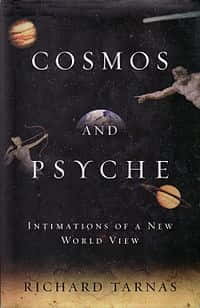Cosmos and Psyche explanation
Share this post
According to Richard Tarnas, who also wrote of The Passion of the Western Mind, history is on the verge of a major shift, comparable to the one wrought by Copernicus and Galileo, but a seemingly antiscientific one: an astrological turn that can only be understood thorough chronicling planetary alignments as they correlate to the rise of the modern mind over the last 500 years.
Understanding planetary alignments, for Tarnas, is crucial to the world's future and requires a genuine dialogue with the cosmos, by opening ourselves more fully to the other, to ancient and indigenous epistemologies, even to other forms of life, other modes of the universe's self-disclosure. The book is filled with philosophical, religious, literary and scientific thinking ranging from Luther and Kepler through Hemingway and even Hitchcock and Dylan. Reading it will require a strong background in the history of modern thought, an advanced knowledge of astrology, a willingness to withhold skepticism about the role of planetary alignments of the past in understanding life today and the avoidance of imminent world catastrophe. Tarnas's call to redefine what we consider as legitimate knowledge will resonate in some sectors, but it will be a tough sell with the more scientifically hardheaded. In terms of planetary cycles, our present condition in history is most comparable to the period five hundred years ago that era of extraordinary turbulence and creativity, the High Renaissance. Not since Copernicus conceived the heliocentric theory has the human community faced such a profound realignment of the way we think. Perhaps it is time for us to move back to the philosophy that man is part of the universe, not placed here to conquer it. Just as we are finding some older medical procedures, such as the use of leeches, to have value today, perhaps we should open our minds to the distinct possibility that astrological forces can be a powerful influence on our lives.

Comments